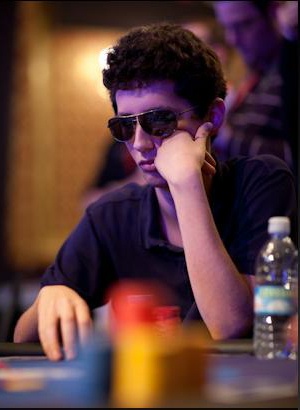|
|

Time -
1. A temporary stoppage in the action, usually initiated by one of the players in the game.
2. A method of raking the games, called “time collection,” or simply “time” for short, used as an alternative to the drop per hand method.
When a poker game is in progress, the players expect each other to act on their hands in a timely manner. Most players follow the
action and can act on their hand within a few seconds when it is their turn. This creates a kind of rhythm to the action which it is
considered discourteous to break. Occasionally, a situation will arise which requires a short stoppage in the action. When such a
situation arises, a player may call “time,” to let the other players know that the action needs to stop. These stoppages can be
initiated because of a procedural problem that needs to be corrected before play can continue, or alternatively, they can simply be a
request from a player for more time to act on his hand.
There are many things that can go wrong procedurally that can lead to a player calling time. Quite often a player will call time when
it is his turn to act but the action has skipped over him. This can happen when the player sitting directly to the left of the action
does not realize that the previous player has not acted, and proceeds with their own action out of turn. If the action has skipped
over you, you need to call “time” to stop the action as quickly as possible. If you do not, the action may continue around the table,
without anyone realizing that you haven’t yet acted. Some players think that they can gain an advantage by allowing the action to
proceed around the table after it skips them. They believe that they will be able to see the actions of their opponents who act after
them, before they are required to act on their hand. If they hold a strong hand, they may attempt to use the opportunity to
check-raise. This is called “shooting an angle,” and
is both poor sportsmanship and against the rules of the game. The rules typically state that it is incumbent upon a player to attempt to
stop the action if it skips them. If a player fails to do so they will forfeit their right to their in-turn action. This is known as the
“action behind” rule.
There are other procedural issues besides action out of turn which require a stoppage of play. A player may call time if he notices
incorrect placement of the blinds or button, if the amount of money in the pot is incorrect, or if he or another player has too many
or too few cards. Generally, a player may call “time” for any issue that requires immediate attention.
A player may also call “time” if they are facing a tough decision and need additional time to act on their hand. This indicates to the
other players that the action will stop for a short period, usually less than a minute, while a decision is made. This is fairly
common in no-limit, pot-limit, and tournament play
where big decisions are often made. If a player calls time, they are always extended it as a courtesy, up to a point. If the time they take
begins to be excessive, the other players may “call the clock.” When the clock is called, a floor person will bring an electronic timer to
the table and inform the player they have a specific amount of time to act on their hand, often thirty seconds or a minute. They will start
the timer, and if the player has not acted by the time the timer expires, the floor person will call their hand dead. It is most common to
see the clock called in tournament play, although it can be called in cash games as well. This is because time is valuable in tournaments,
and players who manipulate the clock can gain an advantage. To prevent this from happening, other players are quick to call the clock if too
much time is taken during tournament play.
“Time” is also short for “time collection.” Time collection is a method of generating revenue which the
house will sometimes use rather than raking the pot every
hand. If a game has collection on time, players are required to pay a predetermined amount every half hour for the right to play in the game.
In a time collection scenario, the house generates revenue by renting the seat to the players in 30 minute intervals. In a flop and drop
scenario, the collection is taken directly from the pot, so that the winner of each pot pays. Time collection is typically a better deal for
the players, because there are often rules like “new players don’t pay,” or “shorthanded games are discounted.” Most casinos have moved away
from time collection as a method of generating revenue, except in high limit games. It has been preserved in high limit games because these
games are often played exclusively with high denomination chips, and it is not practical to break them in order to drop every hand.
Usage: Time Collections Up, Time On My Hand
Previous Poker Term: Tilt
Next Poker Term: To-Go |
|









